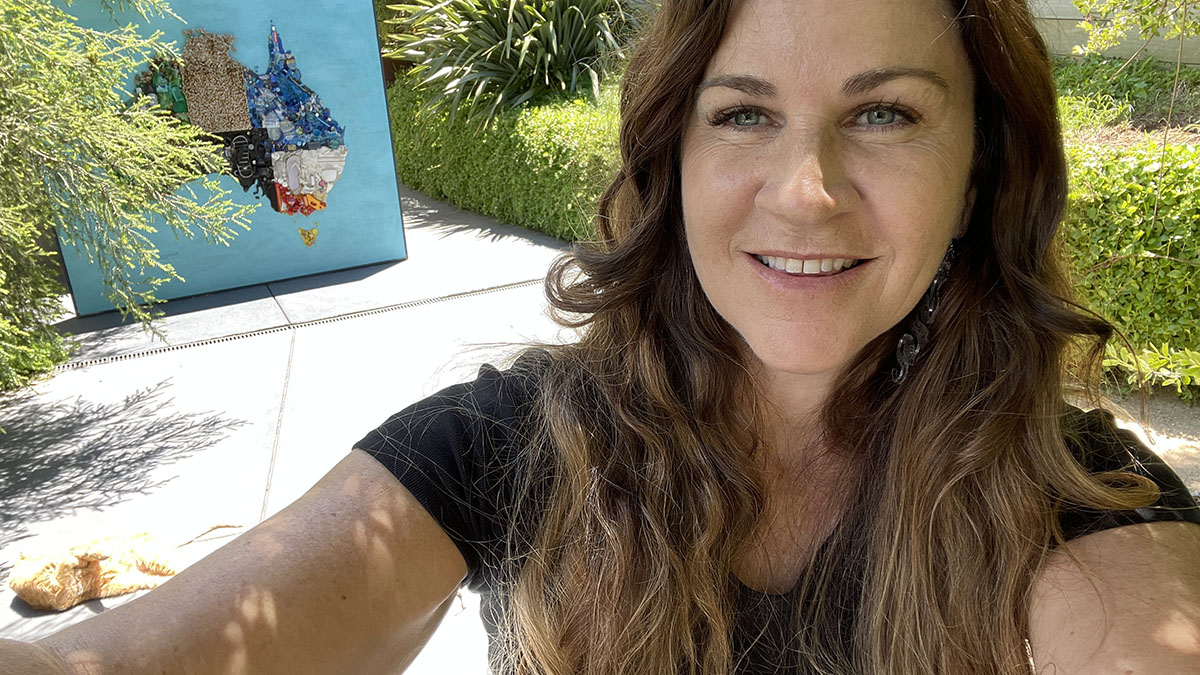JOSIE Jones is one of those genuinely humble people who inspire by their actions, but never expect anything in return.
Which is why the recent Order of Australia Medal recipient and environmental reformer wins hearts and minds wherever she goes, with her rare mix of intelligence and determination, underscored with a gentle focus on love, nature, and the environment.
Our conversation begins with a discussion about her dogs, her now-deceased 15-year-old Jack Russell, Cocolait, that would accompany Ms Jones on beach rubbish pick-up walks, and the dog’s daughter Honey, who is now always by her side.
It’s obvious Ms Jones’ kindness toward all living creatures and her passion for improving the world around her is a key theme to whatever she does, and what drives her to spread the message that keeping the environment rubbish free has an immediate effect on the community, the health of Port Phillip’s marine life.
Not surprisingly, the conversation quickly turns to one of Ms Jones’ other passions, inspiring change, and there’s no stopping her. She’s passionate, articulate, insightful, and motivated. All the attributes that get things done and get people noticing.
Those very same attributes are what got her noticed 10 years ago when she moved to the peninsula after a few years in Tahiti, and then country Victoria, with her young son.
“I felt so lucky to be living near the beach again, but was so shocked by the amount of litter I saw there every day that picking it up became part of my daily routine,” she said.
“I was even more surprised that nobody wanted to have that conversation around rubbish, it seemed too hard.
“As a graphic designer with a background in marketing I knew I could do something, I could get a message out and create awareness, so it just started from there.”
While Ms Jones’ anti-litter campaigns are about reform, she doesn’t preach, but she does walk the talk.
It started all those years ago picking up rubbish from the foreshore but was quickly followed by a succession of campaigns and projects to bring about reform, including the One Tonne challenge in 2012, “to demonstrate the real state of the problem”, The Only Butt campaign to raise awareness of the extent of littering on beaches and inspire behavioural change, and the I’m really a Mermaid poster campaign.
In 2016, she was awarded the Dame Phyllis Frost Award for her outstanding contribution to the environment, and she has also helped coordinate the Rye Seaside Scavenge – which to date has involved 3000 volunteers removing more than 4000kg of litter and 31,000-plus cigarette butts from the beaches and became the biggest Seaside Scavenge in Australia, and the peninsula’s Last Straw campaign, which started in Dromana and has branched out to 11 towns, with support from National Geographic.
One of the latest litter-reduction projects Ms Jones has been involved in is the biodegradable and re-useable beach hand-bins that were first trialed in Rye and led to an 80 per cent drop in small litter items.
While picking up rubbish is still something Ms Jones does most days, she continues to monitor what she finds and register the rubbish in the Australian Marine Debris Database, so the litter can be collated into a standardised national database and the information can be used as a motivator for research and policy change.
Since 2004 more than 20 million pieces of data have been inputted into the database, creating a comprehensive overview of what amounts, and types of marine debris are impacting beaches around the country.
The database has an open access policy enabling scientists, government agencies, communities and organisations to request data on marine debris in Australia for educational and research purposes.
She says simply picking up other people’s rubbish does not necessarily create long-term change.
“To achieve long-term change, you have to show people the damage that litter causes, you have to have the right legislation and the right structures in place, and that’s a massive, ongoing project that starts with education and knowledge.”
It may not have been her intention, but Ms Jones is now one of the peninsula’s most recognised names, awarded the Mornington Peninsula Citizen of the Year in 2019, and the 2020 Victorian Local Hero for the Australian of the Year, and now an Order of Australia Medal for “service to conservation and the environment” that has taken her message to a national level.
“None of this is about me, it’s about changing behaviours, it’s not about berating people or laying blame, it’s about raising awareness, encouraging and educating,” Ms Jones said.
First published in the Southern Peninsula News – 22 March 2022




